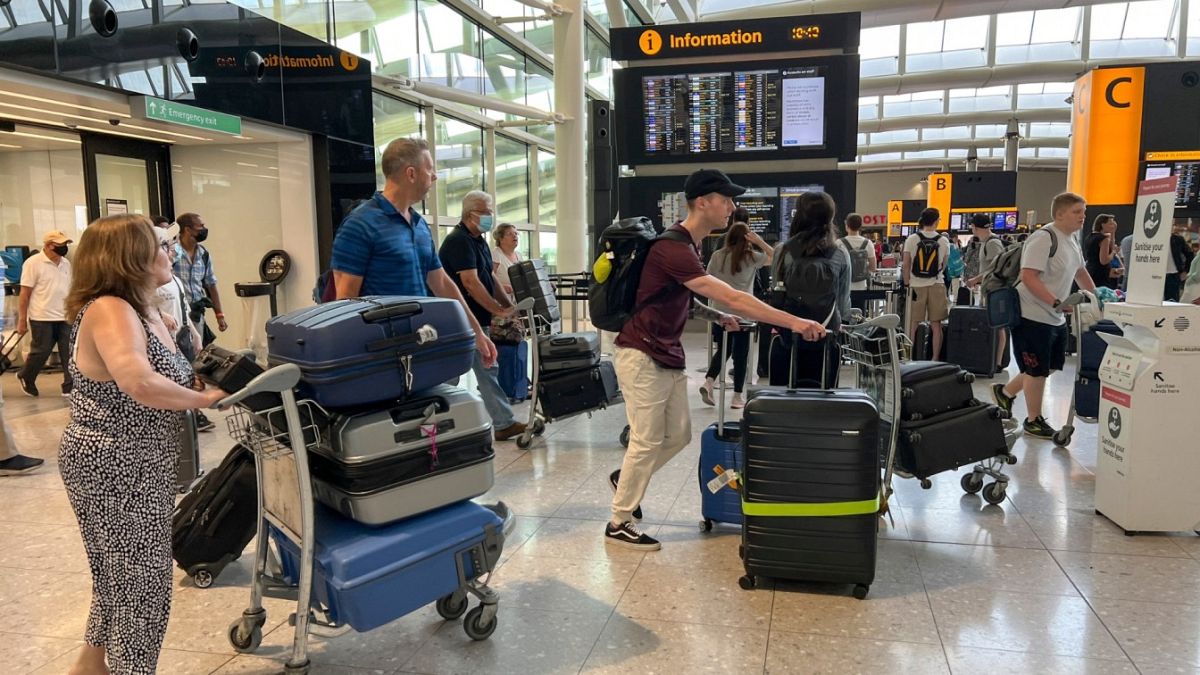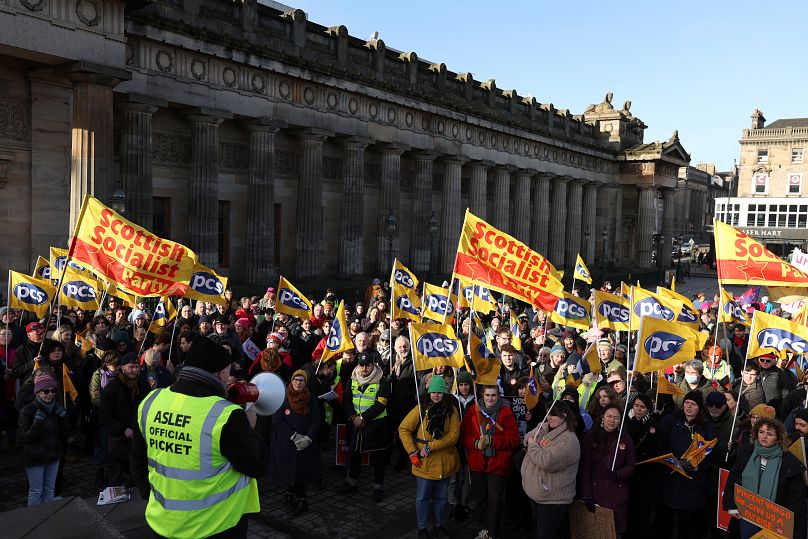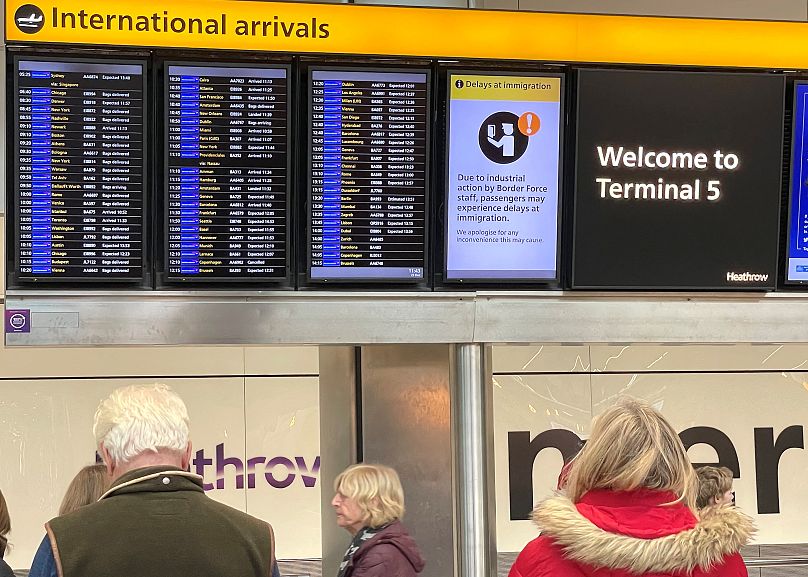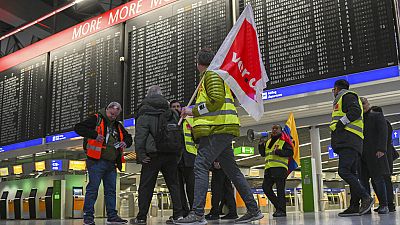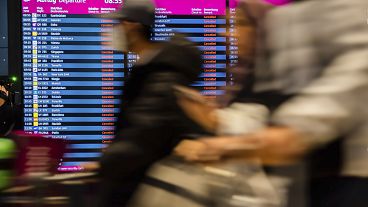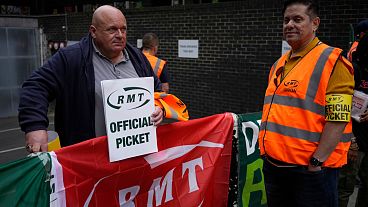Border Force walkouts will take place on 15 March, followed by potential Heathrow strikes over Easter.
Strikes at UK airports and ports are set to impact travellers in March and April.
After striking over February half-term, UK Border Force are again walking out on 15 March.
Although the UK government aims to minimise disruption, it warns that those travelling on the 15th and early the next day should be prepared to face longer wait times at UK border control.
As with last year's strikes, government workers and military personnel have been trained to carry out border checks during the strikes - a scheme that drew criticism previously for jeopardising safety.
Strike action in France will coincide with the 15 March Border Force strikes, which may lead to additional disruption and queues at French ports.
Heathrow is bracing for yet more chaos next month, with members of UK union Unite balloting for strike action over the Easter break in April.
The 15 March strike is part of a wider civil service worker action over pay, jobs and working conditions.
PCS general secretary Mark Serwotka said: "The blame for these strikes lies firmly at the feet of ministers who are refusing to put any money on the table".
Heathrow strikes over Easter could double down on airport chaos
Next month, Heathrow Airport could face further disruption over the Easter holidays if members of Unite vote to strike over pay and conditions.
“Heathrow Airport is guilty of gross hypocrisy, it is paying telephone number salaries to its chief executive and senior managers, but the workers who make the company a success are on poverty wages," says Unite general secretary Sharon Graham.
The ballot, open to over 3,000 workers, will close on 17 March.
How have Border Force strikes affected travel so far?
Last summer, holidaymakers faced hours-long delays at the Port of Dover because of slow border checks caused by staff shortages and new Brexit controls.
Since Britain left the European Union in 2020, UK travellers face stricter border checks when travelling to the continent. At Dover, they are performed on the English side of the channel by French staff.
Serwotka added that, while "untrained military personnel" has been brought in to replace striking workers in the UK, the government won't be able to do this in France.
During the Christmas Border Force strikes, passport checks at Heathrow, Gatwick, Manchester, Glasgow, Cardiff and Birmingham were affected, along with the port of Newhaven, East Sussex.
In response, the government drafted more than 800 military personnel and civil servants to staff entry gates.
Heathrow was challenged with recruiting and training up to 25,000 security-cleared staff before the festive period, a task the airport described as “a huge logistical challenge”. Passengers who were not eligible to use eGates faced longer wait times at Border Control.
At Manchester Airport, 200 new security staff are being recruited, but won't start work until April 2023.
More than 10,000 flights carrying up to 2 million passengers arrived at the affected airports during the strike period, according to aviation analytics company Cirium.
How is the government reducing disruption?
"Military personnel, civil servants and volunteers from across government are being trained to support Border Force at airports and ports across the UK in the event of potential strike action," the UK government said in a statement.
"Border Force are ready to deploy resources to meet critical demand and support the flow of travellers and goods through the border, however, those entering the UK should be prepared for potential disruption."
But the head of the armed forces said during previous strikes that they should not be thought of as "spare capacity" for striking workers.
"We're busy and we're doing lots of things on behalf of the nation - we've got to focus on our primary role," chief of defence staff Admiral Sir Tony Radakin told the Sunday Telegraph.
Is there a danger of problems with passport checks?
Steve Dann has insisted that safety and security at borders will be "non-negotiable" during strike action.
However, unions have warned that military personnel are not properly qualified to carry out these jobs. PCS said that Border Force members "are specialists in their fields and can't be replaced by people with just days of training."
Why are border force officials striking?
The strike is part of a larger coordinated action by thousands of civil servants. 100,000 PCS members in 214 government departments and other public bodies voted to take action
Members are demanding a 10 per cent pay rise, citing eye-watering inflation of 10.6 per cent.
Mark Serwotka, the PCS general secretary, said that the strike would cause "significant disruption" - but added that the cost of living crisis has left workers "desperate" with no choice but to strike.
"We have no option but to take industrial action because our members are using food banks and not able to switch on the heating right now," he said.
"The government can stop these strikes tomorrow if it puts money on the table."
